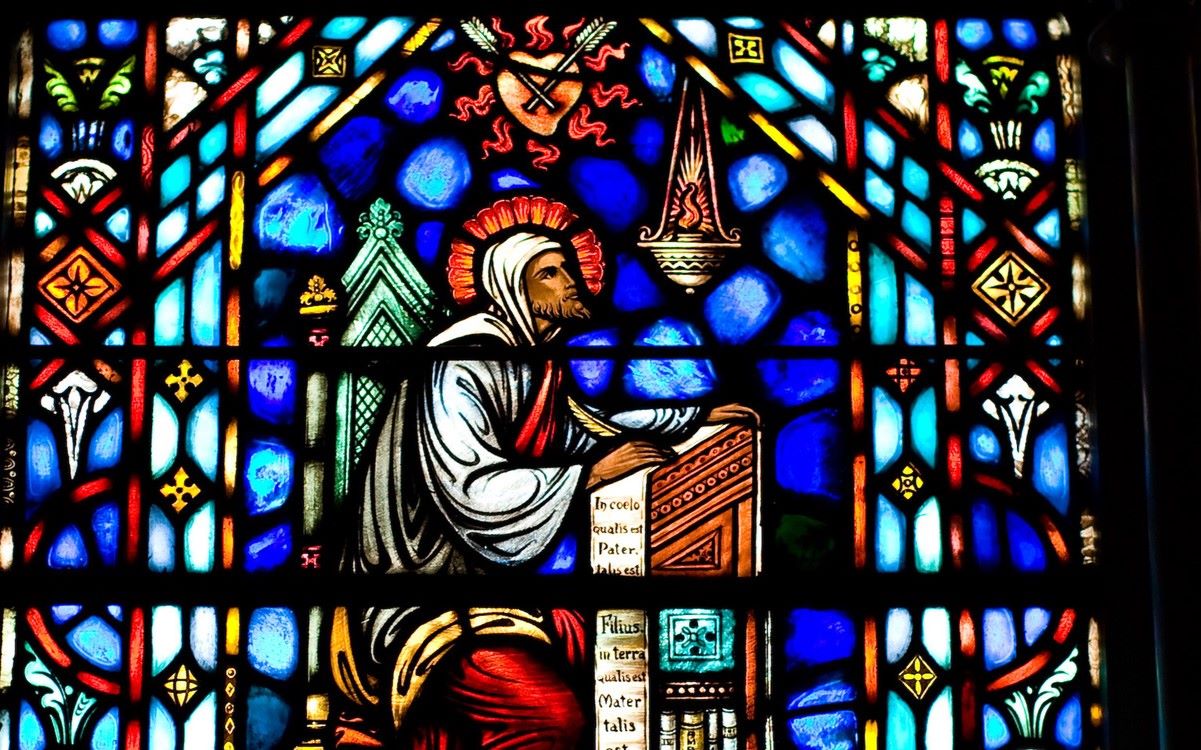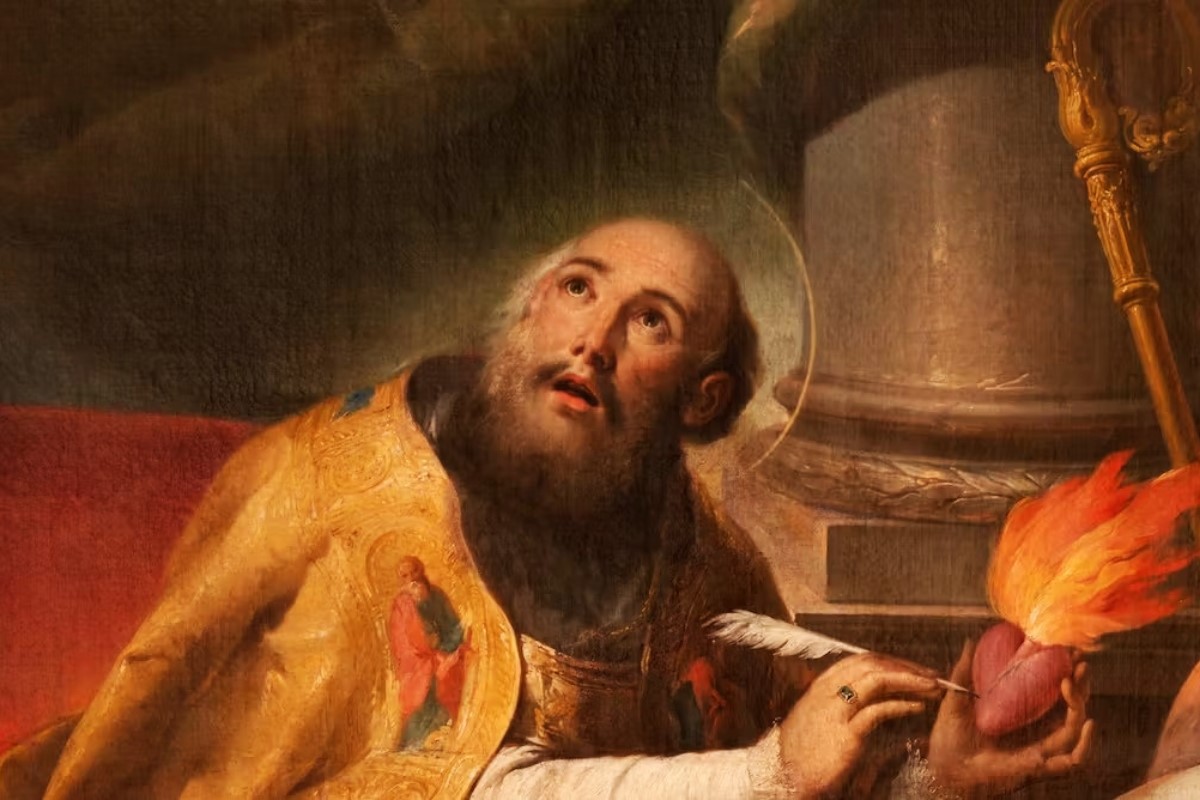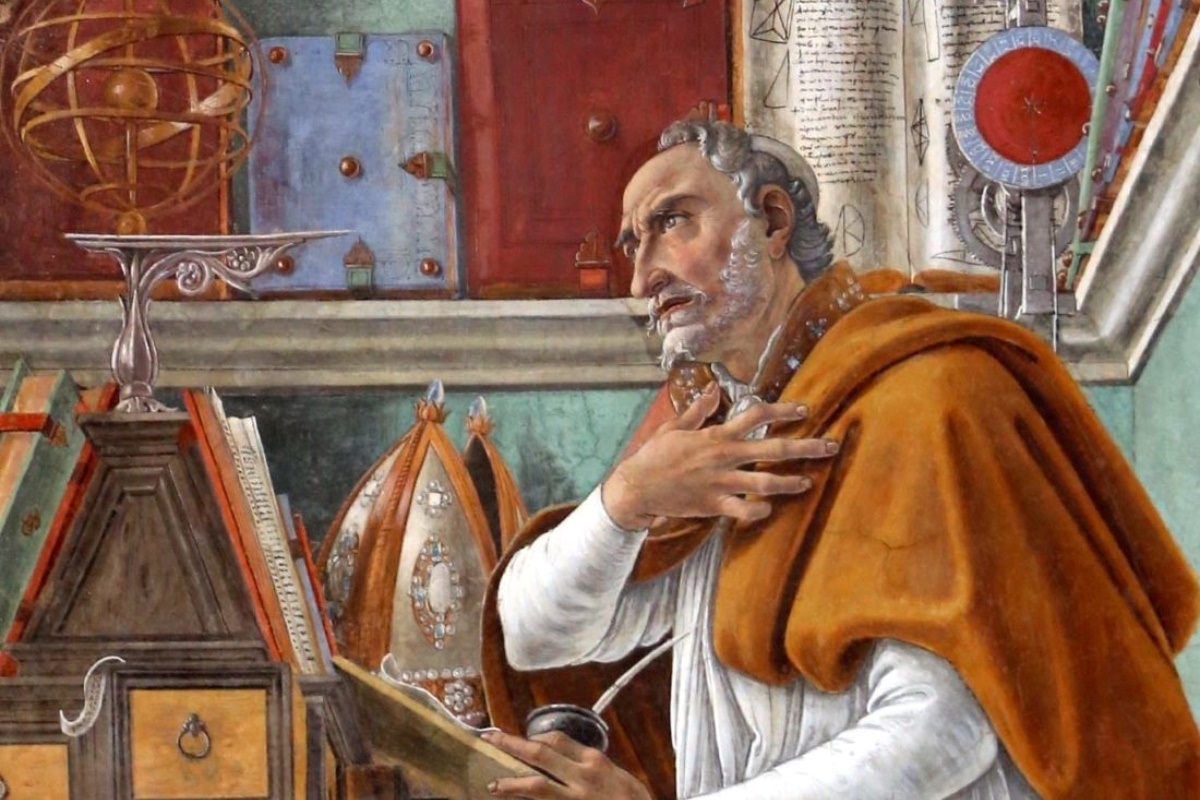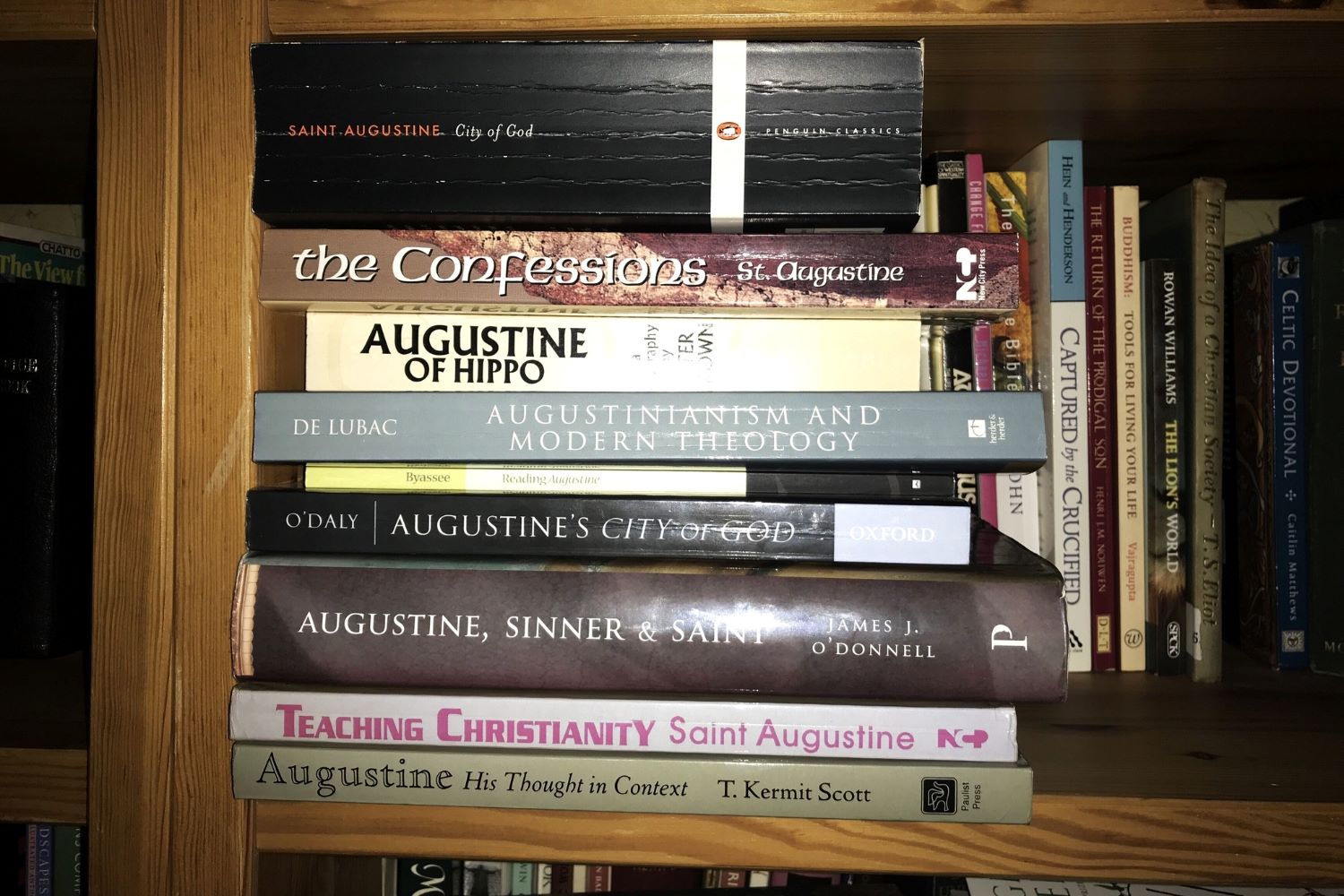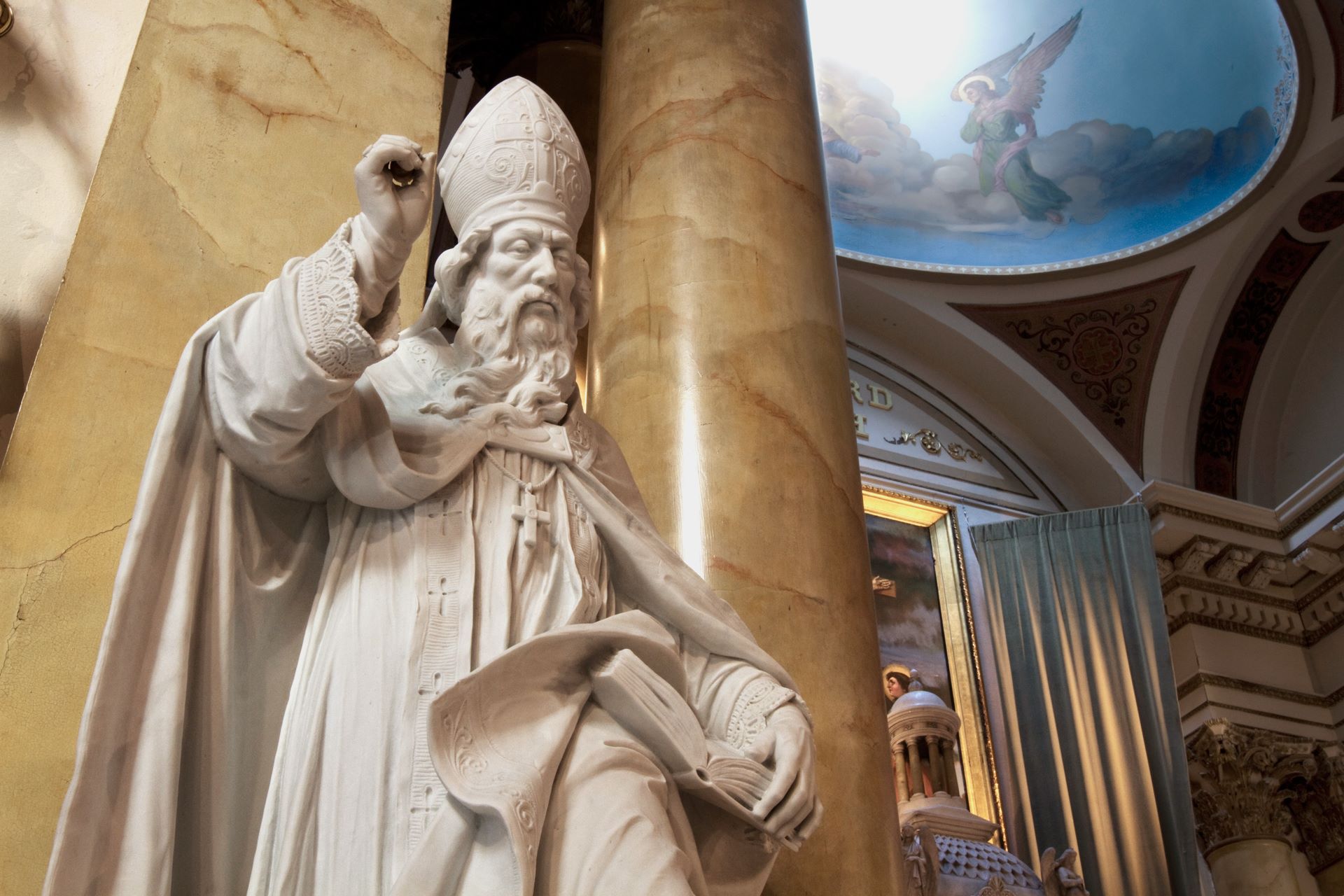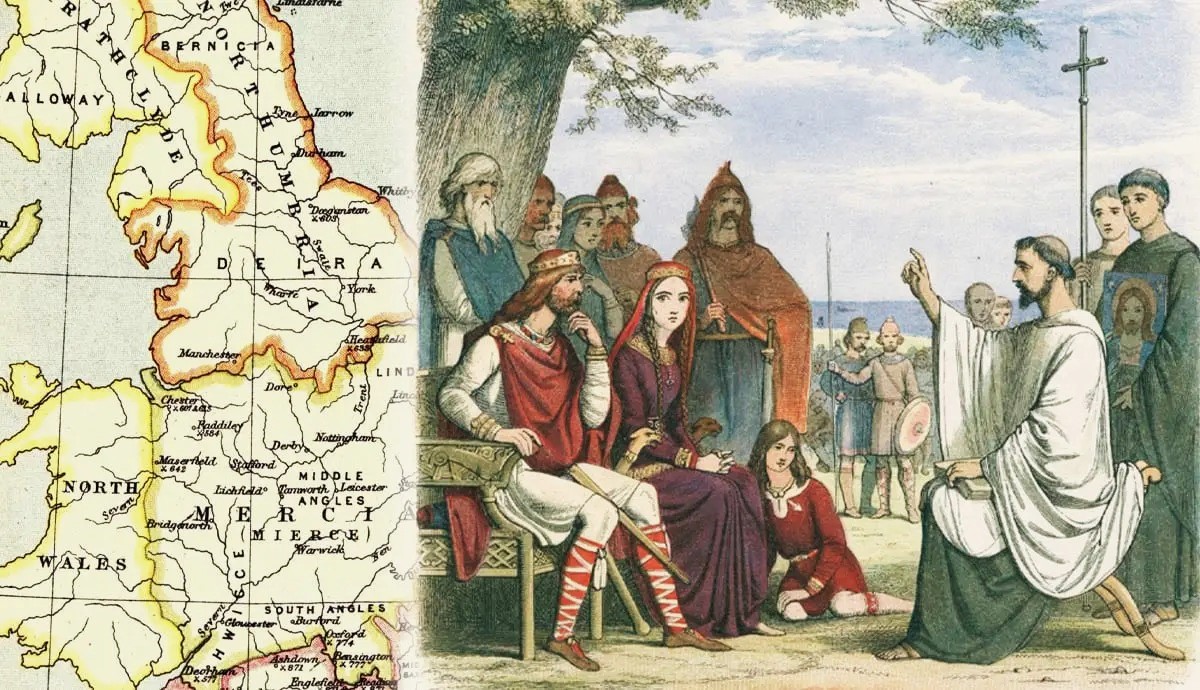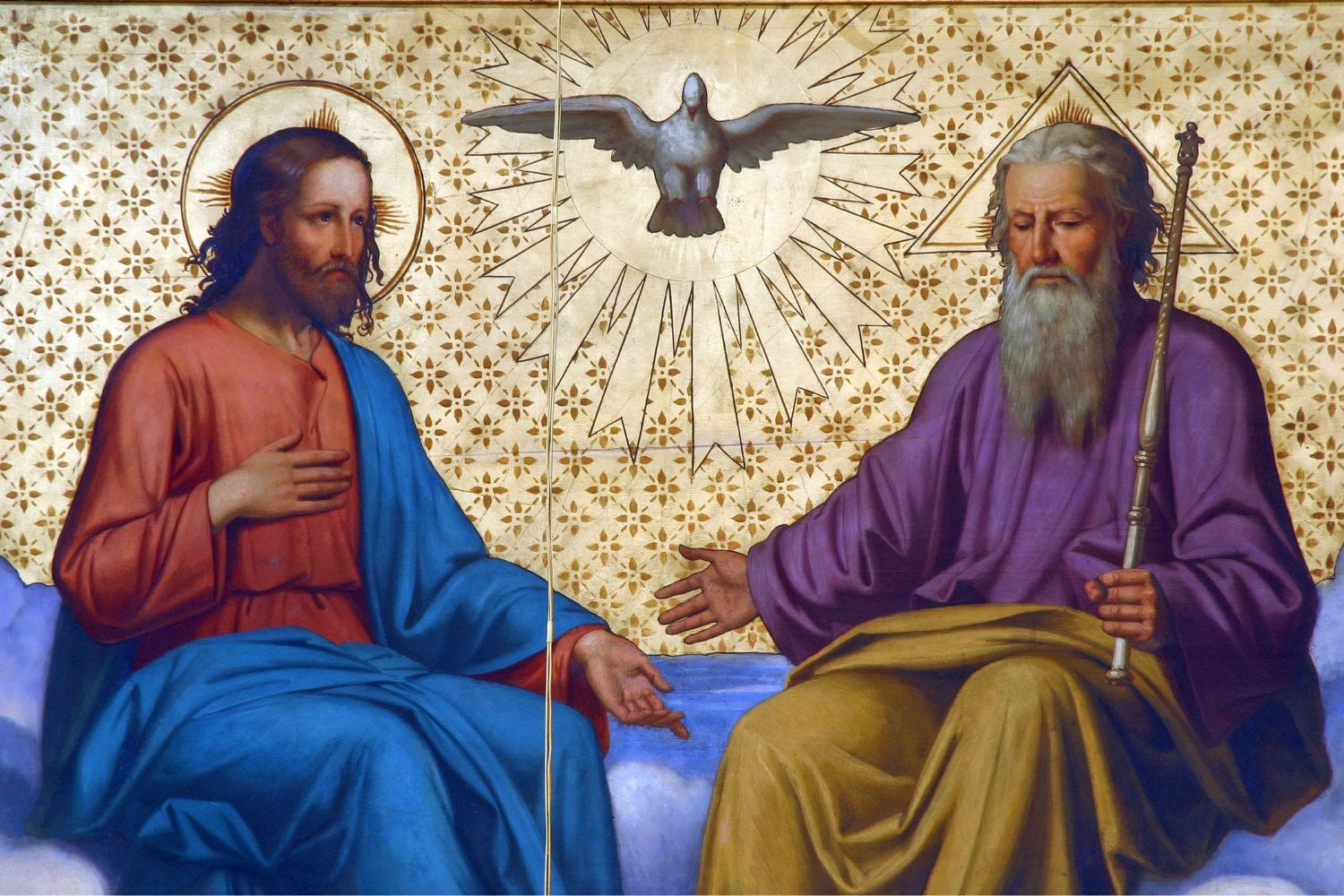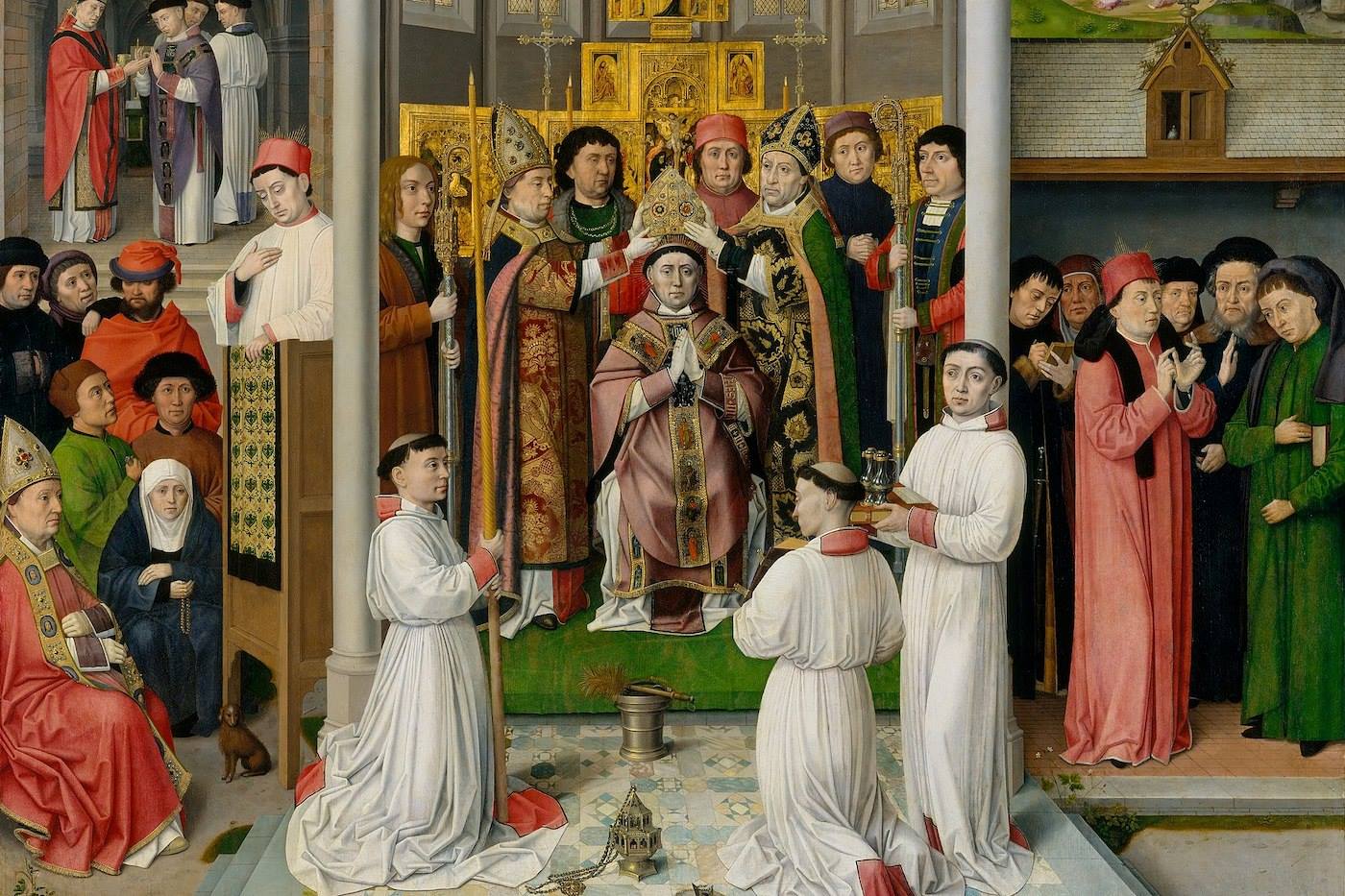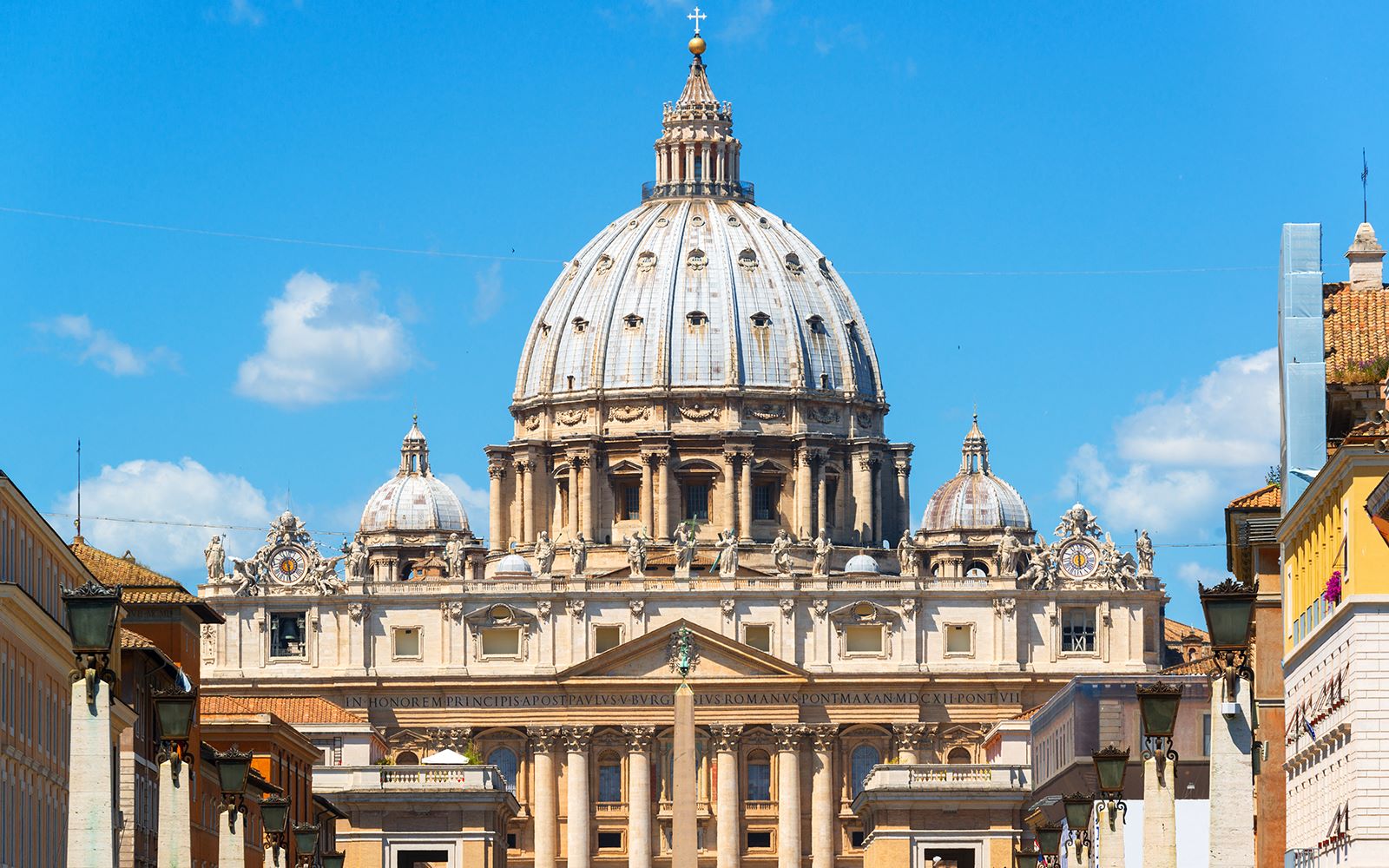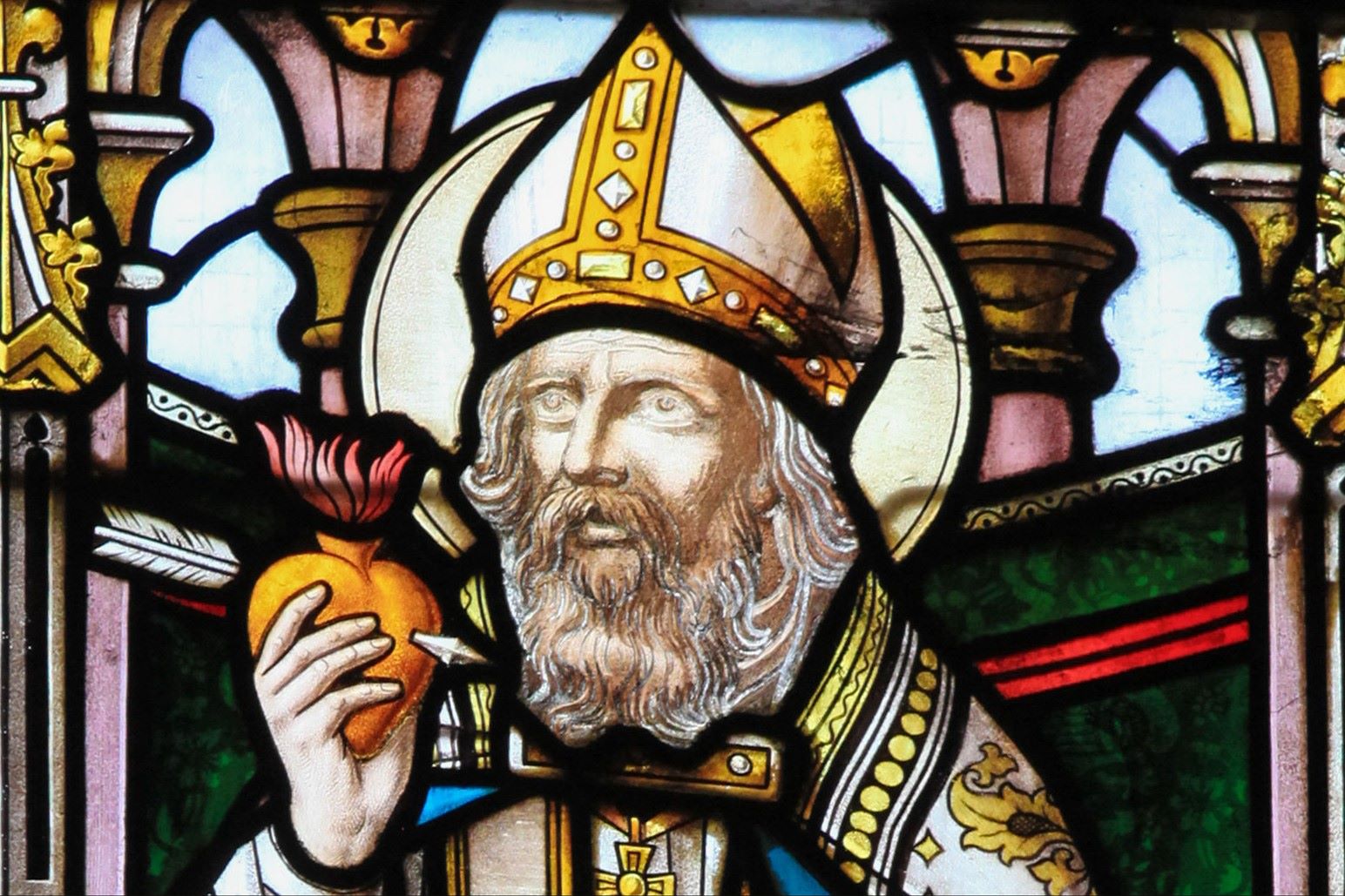Home>Theology and Spirituality>Why Did Augustine Go To Rome
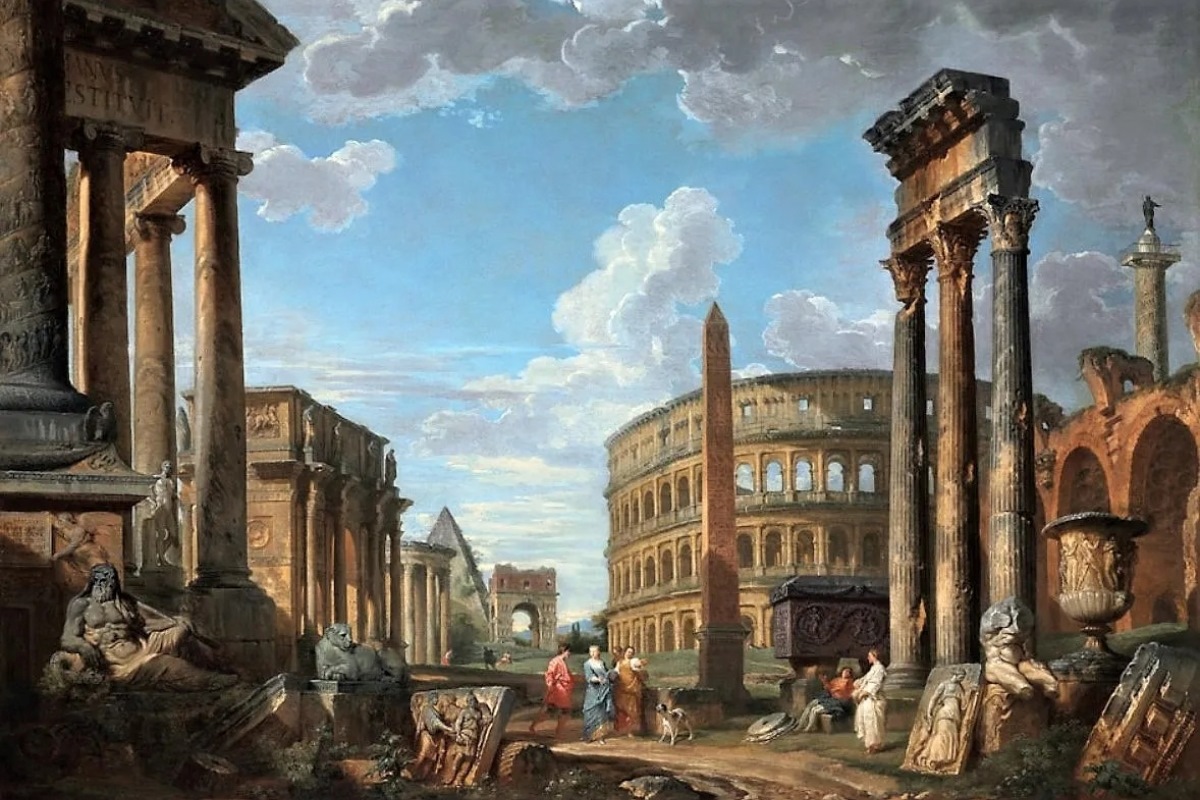

Theology and Spirituality
Why Did Augustine Go To Rome
Published: February 10, 2024
Ericka Andersen, an editor at Christian.net, expertly merges digital strategy with content creation, focusing on faith and societal issues. Her communication skills enhance the platform's engaging narratives, fostering meaningful dialogue on belief's impact on society.
Discover the reasons behind Augustine's journey to Rome and explore the theological and spiritual significance of his visit in this insightful article. Gain valuable insights into theology and spirituality.
(Many of the links in this article redirect to a specific reviewed product. Your purchase of these products through affiliate links helps to generate commission for Christian.net, at no extra cost. Learn more)
Table of Contents
Introduction
Augustine of Hippo, also known as Saint Augustine, was a pivotal figure in the development of Christianity and Western philosophy. His life and teachings continue to inspire and influence countless individuals across the globe. Born in 354 AD in the North African town of Thagaste, Augustine's journey from a young man with a fervent thirst for knowledge to a renowned theologian and philosopher is a compelling narrative of spiritual exploration and intellectual growth.
The story of Augustine's life is not merely a historical account but a profound exploration of human nature, faith, and the pursuit of truth. His writings, particularly his autobiographical work "Confessions," offer a deeply personal and introspective look into his struggles, doubts, and eventual transformation. Through his experiences, Augustine grappled with the complexities of existence, morality, and the nature of God, providing timeless insights that resonate with individuals seeking understanding and meaning in their own lives.
As we delve into the life of Augustine of Hippo, we embark on a journey that transcends time and space, delving into the depths of human consciousness and the enduring quest for spiritual enlightenment. Augustine's profound impact on theology, philosophy, and Christian thought reverberates through the centuries, inviting us to ponder the timeless questions that have captivated the hearts and minds of humanity since time immemorial.
Read more: Why Did Augustine Steal The Pears
Early Life and Education
Augustine of Hippo's early life was marked by a blend of intellectual curiosity and spiritual yearning. Born in 354 AD in Thagaste, a provincial town in Roman North Africa (present-day Algeria), Augustine's upbringing was deeply influenced by his mother, Monica, whose devout Christian faith would later play a significant role in his own spiritual journey. His father, Patricius, a pagan Roman official, provided Augustine with a classical education, emphasizing the importance of rhetoric and literature.
From a young age, Augustine exhibited a remarkable intellect and a voracious appetite for learning. His early education in Thagaste laid the foundation for his future pursuits, instilling in him a deep appreciation for literature and critical thinking. As he matured, his intellectual pursuits led him to Carthage, a bustling center of learning in the Roman Empire. It was here that Augustine's passion for knowledge flourished, and he immersed himself in the study of rhetoric, philosophy, and the liberal arts.
During his time in Carthage, Augustine's intellectual pursuits were accompanied by a period of moral and spiritual exploration. He delved into the teachings of various philosophical schools, including Manichaeism, a dualistic religion that captivated his imagination for a time. This phase of his life was characterized by a fervent quest for truth and meaning, as he grappled with profound existential questions and sought to reconcile the complexities of human existence with his burgeoning intellectual insights.
Augustine's pursuit of knowledge and truth eventually led him to pursue a career in rhetoric, a path that would take him to Rome and later Milan. His early years were marked by a relentless pursuit of wisdom and a deep-seated desire to unravel the mysteries of existence. It was during this formative period that Augustine's intellectual and spiritual journey began to converge, setting the stage for the profound transformation that would unfold in the years to come.
In the crucible of his early life and education, Augustine's insatiable thirst for knowledge and his relentless pursuit of truth laid the groundwork for the remarkable intellectual and spiritual odyssey that would define his legacy. His formative years in Thagaste and Carthage sowed the seeds of inquiry and introspection, shaping the trajectory of his life and paving the way for his enduring contributions to theology, philosophy, and Christian thought.
Conversion to Christianity
The pivotal moment in Augustine of Hippo's life came with his profound and transformative conversion to Christianity. After years of intellectual exploration and spiritual seeking, Augustine's encounter with the renowned bishop, Ambrose of Milan, played a decisive role in shaping his spiritual journey.
Augustine's encounter with Ambrose marked a turning point in his life. The bishop's eloquence and profound understanding of Scripture captivated Augustine, igniting within him a deep curiosity about the Christian faith. Ambrose's sermons resonated with Augustine's intellectual sensibilities, offering a compelling vision of Christianity that transcended mere dogma and ritual. Through Ambrose's teachings, Augustine began to perceive the profound wisdom and moral clarity inherent in the Christian tradition.
As Augustine grappled with his inner turmoil and spiritual yearning, he found himself drawn to the Christian faith, recognizing its profound moral and intellectual depth. The influence of his mother, Monica, whose unwavering faith had been a constant presence in his life, also played a significant role in his gradual embrace of Christianity. Her prayers and steadfast devotion to the Christian path served as a guiding light for Augustine, nurturing the seeds of faith that had been sown in his heart.
The culmination of Augustine's spiritual journey occurred in 386 AD, when, after a period of intense introspection and inner struggle, he experienced a profound spiritual awakening in a garden in Milan. Overwhelmed by a deep sense of remorse for his past transgressions and moved by the grace of God, Augustine underwent a momentous conversion, surrendering himself to the Christian faith and embracing the transformative power of Christ's love and redemption.
Augustine's conversion to Christianity marked a profound shift in his worldview and set the stage for his future endeavors as a theologian and philosopher. His embrace of the Christian faith was not merely a doctrinal adherence but a deeply personal and existential commitment, rooted in his intellectual conviction and spiritual awakening. This pivotal moment in Augustine's life would shape the trajectory of his future writings and teachings, as he embarked on a journey to articulate the profound truths and complexities of the Christian faith.
The impact of Augustine's conversion reverberates through the annals of Christian history, serving as a testament to the enduring power of faith and the transformative potential of the human spirit. His journey from a seeker of truth to a devoted follower of Christ stands as a testament to the profound capacity for spiritual renewal and the unyielding pursuit of divine grace.
Move to Rome
In the wake of his conversion to Christianity, Augustine's journey took an unexpected turn as he made the momentous decision to relocate to Rome. This pivotal transition marked a significant chapter in his life, shaping the trajectory of his spiritual and intellectual pursuits.
The move to Rome was not merely a geographical shift but a profound reorientation of Augustine's aspirations and endeavors. As he ventured into the heart of the Roman Empire, he encountered a vibrant tapestry of cultural, intellectual, and religious diversity. Rome, a bustling metropolis teeming with philosophical discourse and theological inquiry, provided Augustine with a fertile ground for further exploration and contemplation.
Amidst the grandeur and complexity of Roman society, Augustine's presence in the imperial capital heralded a new phase of intellectual engagement and spiritual introspection. His encounters with diverse schools of thought and the rich tapestry of Roman religious traditions offered him a panoramic view of the human quest for meaning and truth.
In the vibrant milieu of Rome, Augustine's intellectual pursuits flourished as he engaged with the prevailing philosophical currents and theological discourses of his time. His interactions with prominent thinkers and scholars fueled his insatiable thirst for knowledge, propelling him into the heart of intellectual discourse and theological inquiry.
Moreover, Augustine's sojourn in Rome provided him with a platform to articulate and defend the Christian faith amidst the prevailing cultural and intellectual currents. His encounters with the vibrant tapestry of Roman religious traditions and philosophical schools deepened his understanding of the human condition and the enduring quest for spiritual fulfillment.
The move to Rome, therefore, served as a crucible for Augustine's intellectual and spiritual development, laying the groundwork for his future contributions to Christian theology and Western philosophy. His immersion in the cultural and intellectual milieu of Rome enriched his perspective and broadened his intellectual horizons, setting the stage for the profound insights and theological reflections that would define his legacy.
In the bustling heart of the Roman Empire, Augustine's sojourn in Rome became a transformative chapter in his life, shaping his intellectual pursuits and spiritual convictions. The vibrant tapestry of Roman society and intellectual discourse provided him with a fertile ground for further exploration and contemplation, propelling him into the heart of theological inquiry and philosophical engagement.
Influence of Ambrose
The influence of Ambrose, the renowned bishop of Milan, on Augustine of Hippo was profound and far-reaching, shaping the trajectory of Augustine's spiritual and intellectual journey. Ambrose's eloquence, profound understanding of Scripture, and moral clarity captivated Augustine, igniting within him a deep curiosity about the Christian faith. As Augustine grappled with his inner turmoil and spiritual yearning, he found himself drawn to the Christian faith, recognizing its profound moral and intellectual depth. The impact of Ambrose's teachings on Augustine's intellectual and spiritual development cannot be overstated.
Ambrose's sermons resonated with Augustine's intellectual sensibilities, offering a compelling vision of Christianity that transcended mere dogma and ritual. Through Ambrose's guidance, Augustine began to perceive the profound wisdom and moral clarity inherent in the Christian tradition. The bishop's influence served as a catalyst for Augustine's gradual embrace of Christianity, marking a pivotal turning point in his spiritual odyssey.
The depth of Ambrose's impact on Augustine's life is evident in the profound transformation that unfolded within Augustine as a result of their interactions. Ambrose's mentorship and profound understanding of Scripture provided Augustine with a solid foundation upon which to build his theological and philosophical inquiries. The bishop's unwavering commitment to the Christian faith and his intellectual acumen inspired Augustine to delve deeper into the complexities of Christian doctrine and the moral imperatives inherent in the Christian tradition.
Moreover, Ambrose's influence extended beyond intellectual discourse, permeating the depths of Augustine's soul and kindling a fervent passion for the Christian faith. The bishop's moral clarity and unwavering commitment to the Gospel served as a guiding light for Augustine, nurturing the seeds of faith that had been sown in his heart. Ambrose's mentorship and spiritual guidance played a pivotal role in shaping Augustine's understanding of the Christian faith and its profound implications for the human experience.
In essence, the influence of Ambrose on Augustine's spiritual and intellectual development was transformative, laying the groundwork for Augustine's future endeavors as a theologian and philosopher. The profound impact of Ambrose's teachings on Augustine's theological reflections and spiritual convictions reverberates through the annals of Christian history, underscoring the enduring power of mentorship and the profound influence of spiritual guidance on the human quest for truth and meaning.
Read more: Why Did Augustine Join The Manicheans
Theological and Philosophical Development
The theological and philosophical development of Augustine of Hippo stands as a testament to the profound depth of his intellectual inquiries and the enduring legacy of his contributions to Christian thought. Following his conversion to Christianity and his immersion in the vibrant intellectual milieu of Rome, Augustine embarked on a remarkable journey of theological and philosophical exploration that would shape the contours of Western thought for centuries to come.
At the heart of Augustine's theological and philosophical development lies his magnum opus, "The City of God." This monumental work represents a profound synthesis of Christian theology, philosophical inquiry, and historical reflection. In "The City of God," Augustine grapples with the complexities of human existence, the nature of divine providence, and the enduring struggle between the earthly realm and the heavenly city. Through a masterful blend of biblical exegesis, philosophical reasoning, and historical analysis, Augustine articulates a vision of human history and the divine plan that continues to resonate with theologians, philosophers, and scholars to this day.
Furthermore, Augustine's theological and philosophical reflections on the nature of sin, grace, and the human will have left an indelible mark on Christian thought. His seminal work, "Confessions," offers a deeply introspective exploration of the human condition, grappling with the complexities of moral agency, divine grace, and the transformative power of redemption. Augustine's profound insights into the nature of sin and the human longing for transcendence have profoundly influenced theological discourse and continue to inform contemporary discussions on ethics, free will, and the human quest for meaning.
In addition to his theological contributions, Augustine's philosophical inquiries encompass a wide array of topics, including metaphysics, epistemology, and the philosophy of mind. His engagement with Neoplatonic thought and his profound reflections on the nature of time, memory, and the self have earned him a revered place in the history of Western philosophy. Augustine's philosophical musings on the nature of truth, the existence of God, and the complexities of human consciousness have sparked enduring debates and continue to inspire philosophical inquiries into the nature of reality and the human experience.
In essence, Augustine's theological and philosophical development represents a profound synthesis of faith and reason, weaving together the rich tapestry of Christian doctrine with the enduring insights of philosophical inquiry. His intellectual legacy continues to resonate with scholars and seekers alike, inviting us to ponder the timeless questions that lie at the intersection of theology, philosophy, and the human quest for transcendence.
Return to Africa
After his transformative experiences in Rome and Milan, Augustine of Hippo embarked on a momentous journey that would lead him back to his native land of North Africa. The decision to return to Africa marked a significant juncture in Augustine's life, heralding a period of profound introspection, pastoral leadership, and intellectual engagement within the vibrant tapestry of African Christianity.
Upon his return to Africa, Augustine's spiritual and intellectual pursuits took on a new dimension as he assumed the role of a prominent leader within the Christian community. His unwavering commitment to the Gospel and his profound theological insights positioned him as a guiding light for the faithful, inspiring a resurgence of Christian thought and moral renewal within the African context.
Moreover, Augustine's return to Africa provided him with a fertile ground for further theological and philosophical exploration. His pastoral responsibilities and intellectual endeavors converged as he grappled with the complexities of Christian doctrine and the moral imperatives inherent in the Christian tradition. Through his sermons, writings, and pastoral care, Augustine sought to articulate a vision of Christianity that resonated with the cultural and spiritual ethos of North Africa, offering profound insights into the human condition and the enduring quest for spiritual fulfillment.
Furthermore, Augustine's return to Africa facilitated a deeper engagement with the socio-cultural dynamics of the region, enabling him to address pressing theological and ethical concerns within the African context. His profound reflections on the nature of sin, grace, and the human will resonated deeply with the African Christian community, fostering a renewed sense of moral introspection and spiritual renewal.
In essence, Augustine's return to Africa marked a pivotal chapter in his life, shaping his pastoral leadership and intellectual contributions within the African Christian tradition. His unwavering commitment to the Gospel and his profound theological insights continue to inspire and guide individuals on their own spiritual journeys, underscoring the enduring legacy of Augustine of Hippo within the rich tapestry of African Christianity.
Legacy
Augustine of Hippo's legacy transcends the boundaries of time and space, permeating the annals of Christian history and the intellectual landscape of Western thought. His profound impact on theology, philosophy, and the human quest for transcendence endures as a testament to the enduring power of his insights and the depth of his spiritual convictions.
At the heart of Augustine's legacy lies his monumental contributions to Christian theology. His magnum opus, "The City of God," stands as a timeless testament to his profound theological acumen and his ability to grapple with the complexities of human existence and the divine plan. Through this seminal work, Augustine articulated a vision of human history and the enduring struggle between the earthly realm and the heavenly city, offering profound insights into the nature of divine providence and the moral imperatives inherent in the Christian tradition.
Furthermore, Augustine's theological reflections on the nature of sin, grace, and the human will have left an indelible mark on Christian thought. His introspective exploration of the human condition in "Confessions" continues to resonate with individuals seeking understanding and spiritual renewal. Augustine's profound insights into the nature of sin and the human longing for transcendence have profoundly influenced theological discourse and continue to inform contemporary discussions on ethics, free will, and the human quest for meaning.
In addition to his theological contributions, Augustine's philosophical inquiries have earned him a revered place in the history of Western philosophy. His engagement with Neoplatonic thought and his profound reflections on the nature of truth, the existence of God, and the complexities of human consciousness have sparked enduring debates and continue to inspire philosophical inquiries into the nature of reality and the human experience.
Moreover, Augustine's legacy extends beyond the realms of theology and philosophy, permeating the depths of human consciousness and the enduring quest for spiritual fulfillment. His unwavering commitment to the Gospel and his profound theological insights continue to inspire and guide individuals on their own spiritual journeys, underscoring the enduring legacy of Augustine of Hippo within the rich tapestry of Christian thought and the human quest for transcendence.

